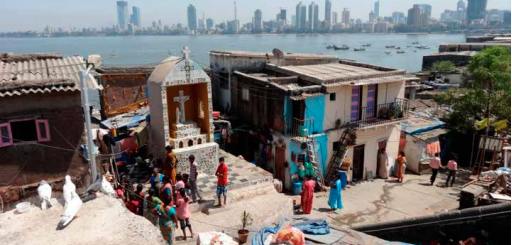Kamala Marius, Govindan Venkatasubramanian, (2017) Exploring Urban Economic Resilience : The Case of A Leather Industrial Cluster in Tamil Nadu
- AuthorKamala Marius, Govindan Venkatasubramanian
- PublisherInstitut Français de Pondichéry / Centre de Sciences Humaines
- Year :2017
- Pages :29 p.
- SeriesUSR 3330 “Savoirs et Mondes Indiens” Working papers series n°9. SUBURBIN Papers Series n°3
- Price :(Not for sale). Available online at https://hal.archives-ouvertes.fr/hal-01547653
Most of the clusters located in small and medium towns in India suffer from several common and well-known problems: obsolete technology, non availability of credit, marketing challenges, missing linkages between industry and other research and technical institutions, etc…In spite of low levels of innovation in Indian clusters, we have to remember the large number of workers that are employed in the enterprises located in these towns and the impact that they have on rural and urban economic growth. Hence the performance of these clusters and their competitiveness in the globalised and liberalized economy become important. However a particularly narrow discourse of competitiveness has been constructed that has a number of negative connotations for the resilience of towns (Bristow, 2010).
Some recent studies on urbanization in India referring to Roy’s theory, focussed on informalisation, impossibility of governance or others, have put the spotlight back on the peripheralisation of industry (Coelho, Vijayabaskar) keeping small industrial towns at low levels of dynamism and social welfare.
In contrast to those approaches, this paper has engaged with the resilience of a small industrial town well integrated into global networks since colonial times. It resonates with the framework of subaltern urbanization involving strong agency of local actors (social capital, business families, women workers) in spite of global circuits of capital.
In this context, the main objective of this study is to analyse why some small globally positioned industrial towns are economically resilient.
We have tried to show how new approaches to Economic Geography based on urban studies can provide a means of understanding the geographically differentiated and uneven resilience of places (Pike and al., 2010). As well explained by Aoyama and al, 2011, “Contemporary economic geographers study geographically specific factors that shape economic processes and identify key agents (such as firms, labor and the state) and drivers (such as innovation, institutions, entrepreneurship and accessibility) that prompt uneven territorial development and change (such as industrial clusters, regional disparities and core-periphery).”
A preliminary analytical framework based upon mechanisms, policies, actors can deepen our understanding of the factors that contribute to the resilience of industrial towns like Ranipet in Tamil Nadu. The present study focuses on the resilience of small industrial towns that are well integrated into global networks since colonial times.









